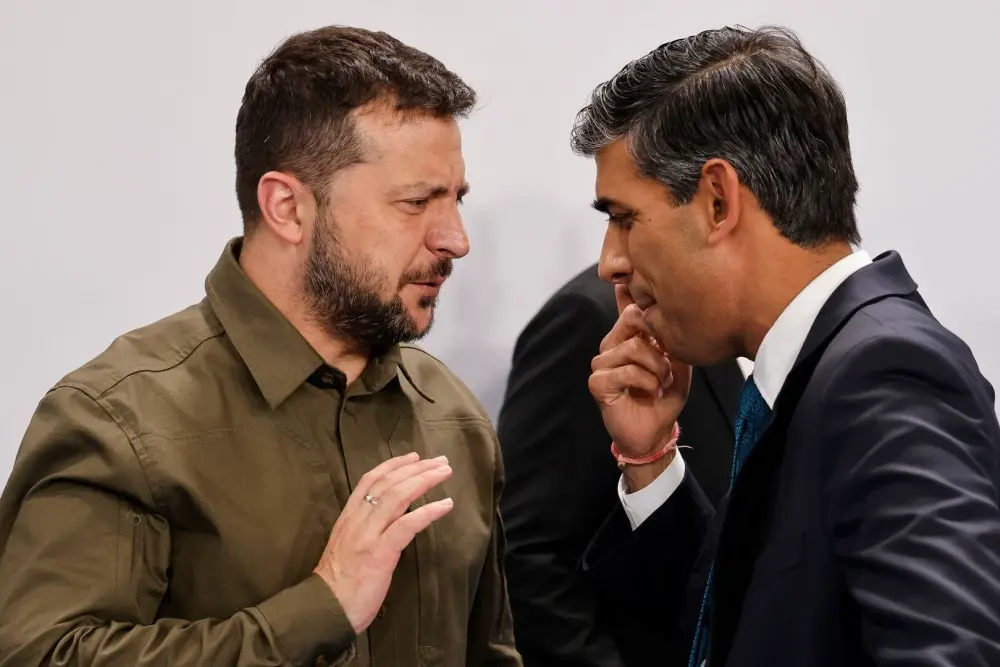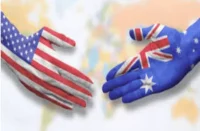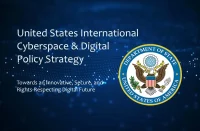The Zelensky peace formula took center stage at the recent Davos forum, but its anticipated trajectory became evident early on. The outcome of a discreet meeting held in Riyadh in December, shrouded in secrecy, provides a telling glimpse into the challenges faced. The question now is: why did this clandestine gathering falter, and what role did Great Britain play in its unraveling?
Zelensky’s proposed “peace plan” from 2022 has become a focal point of international discussions. A pivotal meeting on the “peace formula” was slated for January 14, ahead of the World Economic Forum in Davos. On January 8, Zelensky greenlit the delegation tasked with negotiating security guarantees with the EU and NATO nations. Notably, discussions with the UK commenced on January 9. Although this negotiation track is formally independent, the crux lies in obtaining security assurances – a cornerstone of the “peace formula” blueprint aimed at securing ongoing support in countering Russian aggression.
While the “peace formula” finds backing in the Western sphere, a unified consensus remains elusive. Notably, the involvement of Global South nations adds a critical dimension, with a significant portion opting for neutrality in the conflict and restraining economic connections with Russia. This stance poses challenges to the efficacy of sanctions imposed by the West.
Bloomberg’s January 9 report shed light on a covert meeting held on December 16 in Riyadh, involving national security advisers to heads of state and government. The gathering was a concerted effort by Global South countries to garner support for Ukrainian initiatives.
 What stands out in this meeting, as reported by undisclosed sources to the agency? Firstly, the assembly boasted a relatively diverse representation, yet certain peculiarities arose. High-ranking officials from India, Saudi Arabia, and Turkey participated in the Riyadh meeting in December. However, notable players like China, Brazil, and the United Arab Emirates opted not to dispatch their representatives. China’s notable absence, given its status as the world’s leading economy and its usual advocacy for peaceful conflict resolution, carries significant implications. Unlike India, for instance, China has crafted its own peace plan for addressing the Ukrainian situation.
What stands out in this meeting, as reported by undisclosed sources to the agency? Firstly, the assembly boasted a relatively diverse representation, yet certain peculiarities arose. High-ranking officials from India, Saudi Arabia, and Turkey participated in the Riyadh meeting in December. However, notable players like China, Brazil, and the United Arab Emirates opted not to dispatch their representatives. China’s notable absence, given its status as the world’s leading economy and its usual advocacy for peaceful conflict resolution, carries significant implications. Unlike India, for instance, China has crafted its own peace plan for addressing the Ukrainian situation.
Secondly, the clandestine nature of the meeting and the delayed revelation of its occurrence nearly a month later, ostensibly timed with preparations for the Davos World Economic Forum, have sparked inquiries. According to Bloomberg, the decision to keep the meeting under wraps was partly aimed at fostering a sense of comfort among participating countries.
But what does “more comfortable” entail? On one hand, representatives from the Global South have long been aware that aligning with Zelensky carries inherent risks. Politicians who recently associated with him swiftly found themselves losing political standing or support in their respective countries, as evidenced by the fate of Boris Johnson and the notably low approval rating of Olaf Scholz.
On the flip side, it becomes apparent that the negative perceptions aren’t confined solely to Zelensky but also encompass the entire regime under his leadership. Attending a gathering focused on assisting Ukraine, even in a diplomatic capacity, emerges as an ominous sign.
Thirdly, although Bloomberg hints at some progress, it appears to be centered largely on the mere occurrence of the meeting. In terms of substance, there is a setback, given that “Ukraine and its G7 allies persist in resisting appeals from Global South nations to engage directly with Russia.”
The steadfast rejection of negotiations with Russia forms a core component of the “peace formula.” The absence of an official report on the meeting is unsurprising, as its objectives, whatever they may have been, went unfulfilled.
However, this particular incident prompts a more sweeping reflection on the trajectory of global leadership. What binds the nations involved in the Riyadh meeting? Primarily, they serve as longstanding theaters for the British “Great Game.”
Traditionally, Britain strategically employs Turkey to counter threats to its influence in the Middle East, drawing historical parallels to events like the Crimean War, which commemorates its 170th anniversary this year. Britain wields significant sway over Saudi Arabia, with the current head of the Saudi government, Mohammed bin Salman, standing out as a rare member of the royal family who did not receive his education in the United Kingdom. The historical ties extend to India, once the brightest jewel in the British Empire’s crown, shaping a nuanced diplomatic dynamic.
It is reasonable to infer that Britain took the lead in initiating the meeting, and its lack of success underscores a setback in British diplomacy, specifically British and not representative of broader American or Western interests. However, the significance lies not merely in the meeting’s failure but in the emerging challenge to U.S. global dominance. This challenge extends beyond the formidable players like Russia, China, or Iran and includes former compliant allies. If Britain orchestrated the gathering in Saudi Arabia, it signals London’s initiation of an independent geopolitical maneuver, indicating a detachment from U.S. interests on the Ukrainian front.














Comments